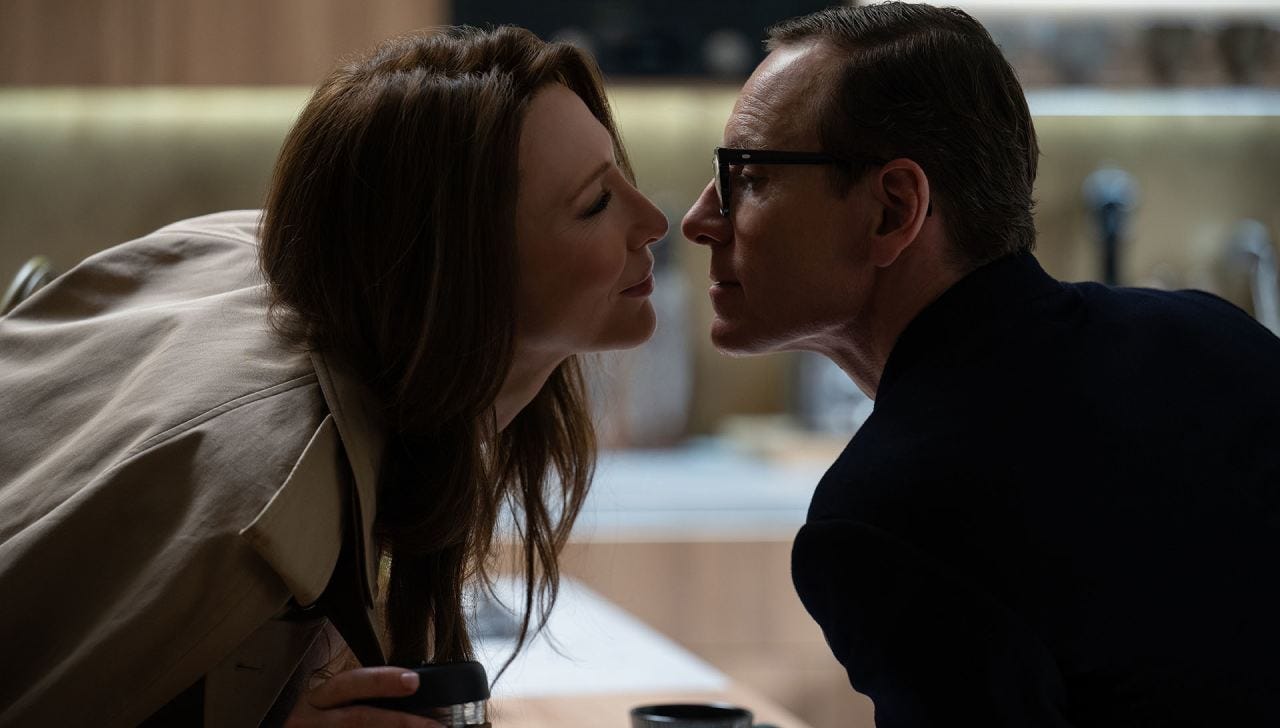Black Bag (Steven Soderbergh, 2025)
A workplace comedy in spy-thriller clothing, Black Bag features Michael Fassbender (dressed in a Soderbergh getup) and Cate Blanchett as married secret agents, George and Kathryn, whose bond is tested when Kathryn becomes one of 5 suspects in a high severity security leak. In this line of work, where duplicity is the norm, no one can date outside the office. As the only successful couple, flaunting their “flagrant monogamy” to their coworkers’ chagrin, director Steven Soderbergh and collaborator David Koepp use the genre proceedings as a front for exploring what makes their relationship function.
Conflating the personal and the professional, the investigation is structured around three variations on game nights, which reveal the strength of George and Kathryn’s romantic bond while contrasting them against the 4 other suspects, younger employees whose series of betrayals and sexual trysts belie a self-interest that verges on the dissociative. Creating a progression from hazily-lit long shots to medium closeups across the three set-pieces, Soderbergh turns the procedure into one that’s literally clarifying as we come to understand that a healthy office relationship is a matter of trust and intention. What’s turmoil for their coworkers becomes romantic for George and Kathryn. In its subversion of surveillance, Black Bag is surprisingly of a piece with Presence, Soderbergh and Koepp’s other 2025 release. Where that film’s peeping spirit was portrayed as a paternal guardian angel, here, that same gaze becomes eroticized (“I can feel when you’re watching me” purrs Kathryn). Even the characters’ professional term for confidential information, “Black Bag”, becomes something of a safe word, as the couple’s willingness to sweep things under the rug reflects their deep well of trust.
If I have one major reservation with Black Bag, it’s that despite the kinky subtext, the film feels a bit vanilla. Black Bag feels in service of something surprisingly straight-edge, and I couldn’t help but think Michael Koresky’s description of Babygirl as a film where “The ultimate turn-on is respectful, consensual, and nuptial hanky panky”. There’s a stylistic element here, as Black Bag is hyper-contained, a pressurized object of sleek corporate interiors and swift, disorienting flourishes (e.g. quick cuts to extreme angles). On one hand, this economy, which mirrors George’s technical, taciturn temperament, is indicative of the extreme discipline he exercises to maintain the relationship, but it also feels restrictive in its composure, leaving little room for sexual charge. Soderbergh’s concision is one of his greatest strengths, but this is a case where a little more might’ve been better.
Black Bag is distributed by Focus Features and in theaters now.


